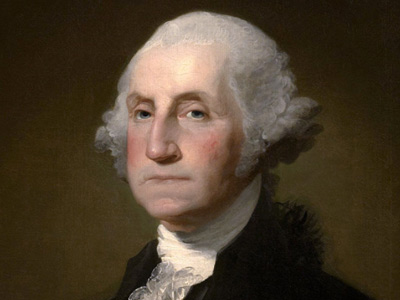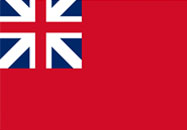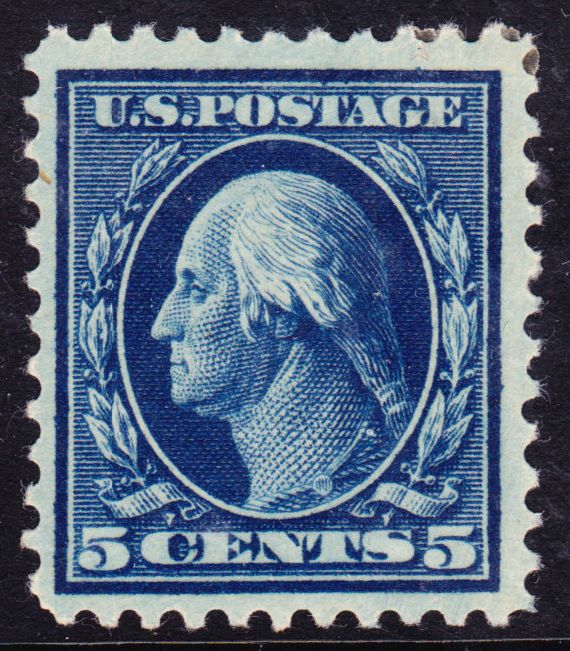George Washington (1732-1799)
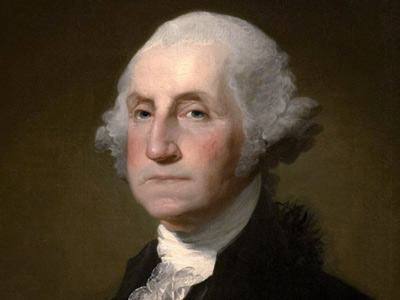
American Revolution (1775–1783)
Washington played a leading military and political role in the American Revolution. His involvement began in 1767, when he first took political stands against the various acts of the British Parliament. He opposed the 1765 Stamp Act, the first direct tax on the colonies imposed by the British Parliament, which included no representatives from the colonies; he began taking a leading role in the growing colonial resistance when protests became widespread against the Townshend Acts (enacted in 1767). In May 1769, he introduced a proposal, drafted by his friend George Mason and calling for Virginia to boycott English goods until the Acts were repealed.
Parliament repealed the Townshend Acts in 1770. Washington regarded the passage of the Intolerable Acts in 1774 as "an Invasion of our Rights and Privileges". He told friend Bryan Fairfax, "I think the Parliament of Great Britain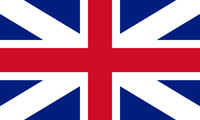 The Kingdom of Great Britain was a sovereign country in Western Europe from 1 May 1707 to the end of 31 December 1800. The state was created by the 1706 Treaty of Union and ratified by the Acts of Union 1707, which united the kingdoms of England (which included Wales) and Scotland to form a single kingdom encompassing the whole island of Great Britain and its outlying islands, with the exception of the Isle of Man and the Channel Islands. has no more right to put their hands in my pocket without my consent than I have to put my hands into yours for money." He also said that Americans
The Kingdom of Great Britain was a sovereign country in Western Europe from 1 May 1707 to the end of 31 December 1800. The state was created by the 1706 Treaty of Union and ratified by the Acts of Union 1707, which united the kingdoms of England (which included Wales) and Scotland to form a single kingdom encompassing the whole island of Great Britain and its outlying islands, with the exception of the Isle of Man and the Channel Islands. has no more right to put their hands in my pocket without my consent than I have to put my hands into yours for money." He also said that Americans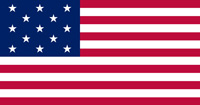 The United States of America (USA), is a country in North America. The American Revolutionary War (April 19, 1775 - September 3, 1783) was the military conflict in which American patriot forces under George Washington's command defeated the British, establishing and securing the independence of the United States. After the Revolution, the United States gained independence, the first nation-state founded on Enlightenment principles of liberal democracy. must not submit to acts of tyranny "till custom and use shall make us as tame and abject slaves, as the blacks we rule over with such arbitrary sway."
The United States of America (USA), is a country in North America. The American Revolutionary War (April 19, 1775 - September 3, 1783) was the military conflict in which American patriot forces under George Washington's command defeated the British, establishing and securing the independence of the United States. After the Revolution, the United States gained independence, the first nation-state founded on Enlightenment principles of liberal democracy. must not submit to acts of tyranny "till custom and use shall make us as tame and abject slaves, as the blacks we rule over with such arbitrary sway."
In July 1774, he chaired the meeting at which the "Fairfax Resolves" were adopted, which called for the convening of a Continental Congress, among other things. In August, Washington attended the First Virginia Convention, where he was selected as a delegate to the First Continental Congress.
Commander in Chief
The colonies went to war after the Battles of Lexington and Concord near Boston in April 1775. Washington appeared at the Second Continental Congress in a military uniform, signaling that he was prepared for war. He had the prestige, military experience, charisma, and military bearing of a military leader and was known as a strong patriot. Virginia was the largest colony and deserved recognition, and New England—where the fighting began—realized that it needed Southern support. Washington did not explicitly seek the office of commander and said that he was not equal to it, but there was no serious competition. Congress created the Continental Army on June 14, 1775. Washington was nominated by John Adams of Massachusetts, then appointed as a full General and Commander-in-chief of the Continental Army. Washington's refusal to accept a salary earned him a reputation as a "noble and disinterested" commanding officer.
The British then articulated the peril of Washington and his army; on August 23, 1775, Britain issued a Royal proclamation labeling American Patriots as traitors. If they resorted to force, they faced confiscation of their property, and their leaders were subject to execution upon the scaffold.
General Washington essentially assumed three roles during the war. First, he provided leadership of troops against the main British forces in 1775–77 and again in 1781. He lost many of his battles, but he never surrendered his army during the war, and he continued to fight the British relentlessly until the war's end. He plotted the overall strategy of the war, in cooperation with Congress.
Second, he was charged with organizing and training the army. He recruited regulars and assigned Baron von Steuben to train them, a veteran of the Prussian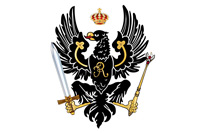 The Kingdom of Prussia was a German kingdom that constituted the state of Prussia between 1701 and 1918. It was the driving force behind the unification of Germany in 1871 and was the leading state of the German Empire until its dissolution in 1918. Although it took its name from the region called Prussia, it was based in the Margraviate of Brandenburg. Its capital was Berlin. general staff. The war effort and getting supplies to the troops were under the purview of Congress, but Washington pressured the Congress to provide the essentials. In June 1776, Congress' first attempt at running the war effort was established with the committee known as "Board of War and Ordnance", succeeded by the Board of War in July 1777, a committee which eventually included members of the military. The command structure of the armed forces was a hodgepodge of Congressional appointees (and Congress sometimes made those appointments without Washington's input) with state-appointments filling the lower ranks. The results of his general staff were mixed, as some of his favorites (such as John Sullivan) never mastered the art of command.
The Kingdom of Prussia was a German kingdom that constituted the state of Prussia between 1701 and 1918. It was the driving force behind the unification of Germany in 1871 and was the leading state of the German Empire until its dissolution in 1918. Although it took its name from the region called Prussia, it was based in the Margraviate of Brandenburg. Its capital was Berlin. general staff. The war effort and getting supplies to the troops were under the purview of Congress, but Washington pressured the Congress to provide the essentials. In June 1776, Congress' first attempt at running the war effort was established with the committee known as "Board of War and Ordnance", succeeded by the Board of War in July 1777, a committee which eventually included members of the military. The command structure of the armed forces was a hodgepodge of Congressional appointees (and Congress sometimes made those appointments without Washington's input) with state-appointments filling the lower ranks. The results of his general staff were mixed, as some of his favorites (such as John Sullivan) never mastered the art of command.
Eventually, he found capable officers, such as General Nathanael Greene, General Daniel Morgan ("the old wagoner" with whom he had served in The French and Indian War), Colonel Henry Knox (chief of artillery), and Colonel Alexander Hamilton (chief of staff). The American officers never equaled their opponents in tactics and maneuver, and consequently, they lost most of the pitched battles. The great successes at Boston (1776), Saratoga (1777), and Yorktown (1781) came from trapping the British far from base with much larger numbers of troops. Daniel Morgan's annihilation of Banastre Tarleton's legion of dragoons at Cowpens in February 1781 came as a result of Morgan's employment of superior line tactics against his British opponent, resulting in one of the very few double envelopments in military history, another being Hannibal's defeat of the Romans at Cannae in 216 BC.
The decisive defeat of Col. Patrick Ferguson's Tory Regiment at King's Mountain demonstrated the superiority of the riflery of American "over-mountain men" over British-trained troops armed with musket and bayonet. These "over-mountain men" were led by a variety of elected officers, including the 6'6" William Campbell who had become one of Washington's officers by the time of Yorktown. Similarly, Morgan's Virginia riflemen proved themselves superior to the British at Saratoga, a post-revolutionary war development being the creation of trained "rifle battalions" in the European armies.
Washington's third and most important role in the war effort was the embodiment of armed resistance to the Crown, the representative man of the Revolution. His long-term strategy was to maintain an army in the field at all times, and eventually this strategy worked. His enormous personal and political stature and his political skills kept Congress, the army, the French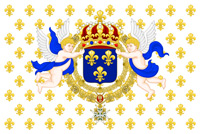 The Kingdom of France is the historiographical name or umbrella term given to various political entities of France in the medieval and early modern period. It was one of the most powerful states in Europe since the High Middle Ages. It was also an early colonial power, with possessions around the world. Colonial conflicts with Great Britain led to the loss of much of its North American holdings by 1763. The Kingdom of France adopted a written constitution in 1791, but the Kingdom was abolished a year later and replaced with the First French Republic., the militias, and the states all pointed toward a common goal. Furthermore, he permanently established the principle of civilian supremacy in military affairs by voluntarily resigning his commission and disbanding his army when the war was won, rather than declaring himself monarch. He also helped overcome the distrust of a standing army by his constant reiteration that well-disciplined professional soldiers counted for twice as much as erratic militias. (This was clearly demonstrated in the rout at Camden, where only the Maryland and Delaware Continentals held firm under Baron DeKalb.)
The Kingdom of France is the historiographical name or umbrella term given to various political entities of France in the medieval and early modern period. It was one of the most powerful states in Europe since the High Middle Ages. It was also an early colonial power, with possessions around the world. Colonial conflicts with Great Britain led to the loss of much of its North American holdings by 1763. The Kingdom of France adopted a written constitution in 1791, but the Kingdom was abolished a year later and replaced with the First French Republic., the militias, and the states all pointed toward a common goal. Furthermore, he permanently established the principle of civilian supremacy in military affairs by voluntarily resigning his commission and disbanding his army when the war was won, rather than declaring himself monarch. He also helped overcome the distrust of a standing army by his constant reiteration that well-disciplined professional soldiers counted for twice as much as erratic militias. (This was clearly demonstrated in the rout at Camden, where only the Maryland and Delaware Continentals held firm under Baron DeKalb.)
HISTORY
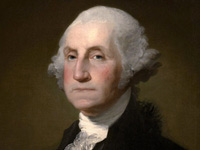
RESOURCES
This article uses material from the Wikipedia article "George Washington (1732-1799)", which is released under the Creative Commons Attribution-Share-Alike License 3.0.
© Stories Preschool. All Rights Reserved.
